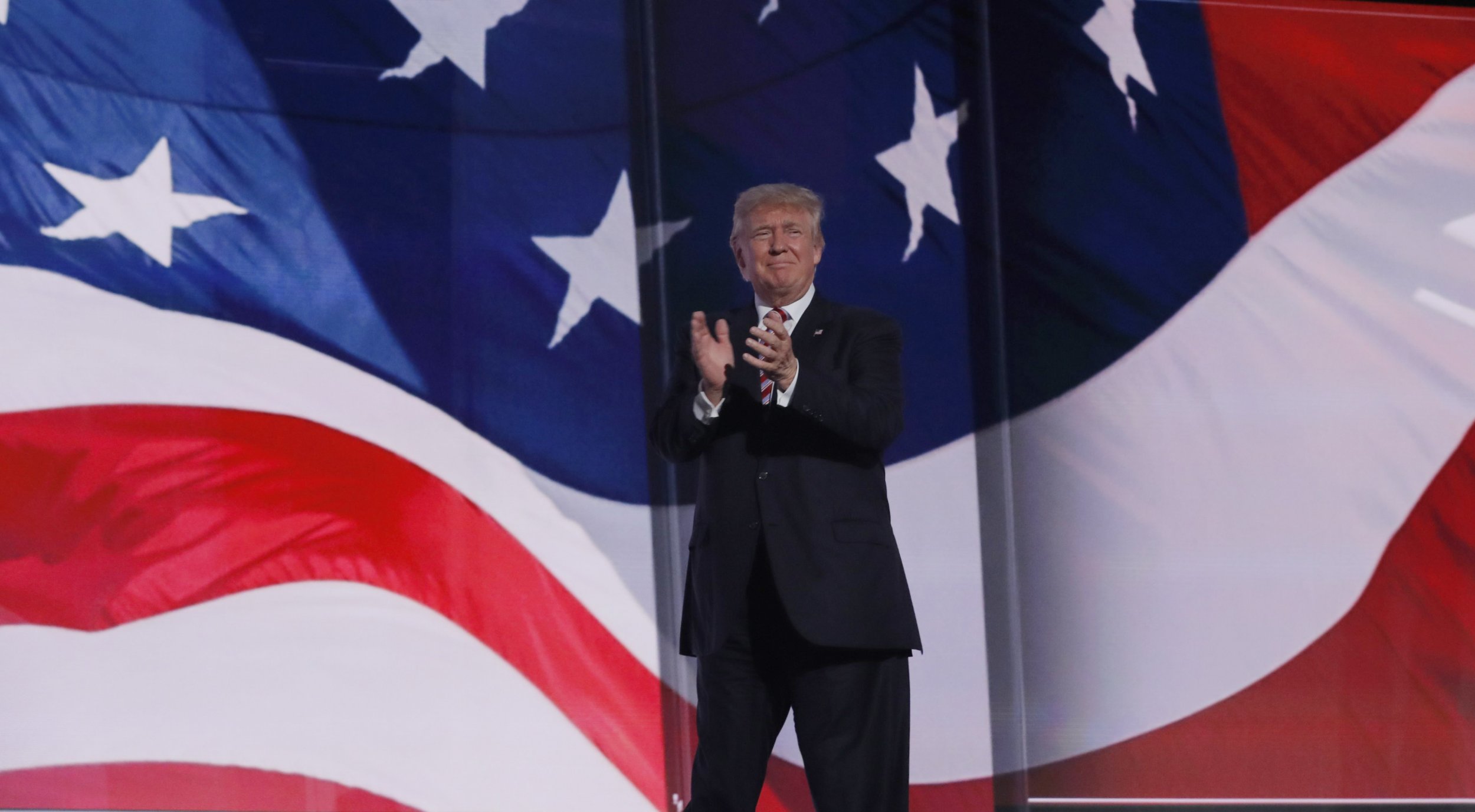
In an interview with the New York Times yesterday, Donald Trump indicated in the clearest terms yet that he holds U.S. alliance commitments in exceptionally low regard. To Trump, alliances are a drag on the U.S., imposing massive costs and allowing the rest of the world to take advantage of it.
Trump has based his campaign on the premise that he is a uniquely talented negotiator. But what he is proposing is to take one of the greatest sources of American strength off the table without giving a plausible explanation of how it might be replaced.
The Republican nominee's criticism of the U.S. role in the world is framed almost exclusively in terms of economics. In this worldview, the U.S. pays lots of money to maintain a forward military presence, and is "punished" in return for a trade deficit. That is, at the very least, a massive and misleading oversimplification of the real relationship between foreign expenditure and the U.S. economy—but that's not the biggest problem with the argument.
The broader point is that Trump ignores the real, material benefits that alliances, including NATO, bring to the U.S.—alliances are power multipliers. The U.S. benefits enormously from its world-spanning network of partnerships in ways that do not appear directly on balance sheets. American allies contribute troops to peacekeeping missions, help keep sea lanes open for trade, support U.S. initiatives in international organizations and through ad hoc agreements far too numerous to name.
Simply put, the U.S. isn't the leading global economic, military and political power as a result of ignoring other nations. Instead, its investment in alliances over the last century has borne fruit in the form of a global network which supports, reinforces and multiplies its legitimacy and capacity. That's not to say that the U.S. acts selflessly—like any other power, its primary motivation is the preservation of its own national interest. But generations of American political and military leaders have seen the building and maintenance of alliance relationships as in the long-term interest of the U.S., rather than a loss in a zero-sum game.
Trump's statements come at an awkward time for NATO. Europe has struggled with a slow and uneven economic recovery, extremism, a refugee crisis and unity within the European Union. While Russia's intervention in Ukraine has answered the question of the alliance's purpose which had dogged it since 1991, there remain real disputes about burden-sharing, strategic orientation and decision-making. One of the bright spots is continued American support for the alliance. While NATO certainly isn't at the top of anyone's list of most potent political issues in the US, 77 percent of Americans (including 75 percent of Republicans and 78 percent of Independents) think that NATO membership is good for the U.S., according to Pew Research Center. And condemnation of Trump's remarks from the American security establishment was immediate and bipartisan.
That opposition underlines the fact that Trump would face massive institutional opposition to systematically rebalancing the U.S. out of its alliance commitments. He might ultimately succeed, or he might lose interest and leave the overall alliance structures more or less intact. But military alliances such as NATO rely on the principle of deterrence. Specifically, NATO's founding documents commit all members to treat an attack on one as an attack on all—not to consider whether to do so based on an unspecified financial accounting. Trump's comments threaten to hollow that commitment out; if allies don't believe that NATO's most militarily powerful member will come to their aid in the event of an attack, adversaries certainly won't.
Trump's claim is that this is a negotiating position—that by threatening the previously unthinkable, NATO allies will spend more on defense and relieve the burden on the U.S.. It is not out of the question that such a threat might cause a few NATO members to increase their defense budgets by a fraction in an effort to placate him. But in doing so, Trump would be rebranding the U.S. as a fundamentally unreliable and capricious ally. He'd be trading a priceless and irreplaceable American asset for a rounding error in the annual Pentagon budget.
Any good negotiator would see that for what it is: a truly terrible deal.
Dr Jacob Parakilas is assistant head of the US and the Americas Programme at Chatham House. Follow him on Twitter @Jparakilas
Uncommon Knowledge
Newsweek is committed to challenging conventional wisdom and finding connections in the search for common ground.
Newsweek is committed to challenging conventional wisdom and finding connections in the search for common ground.
About the writer
To read how Newsweek uses AI as a newsroom tool, Click here.








